
Deputy Prime Minister Tran Hong Ha chaired the meeting - Photo: VGP
On the morning of September 25, Deputy Prime Minister Tran Hong Ha chaired a meeting to listen to reports and give opinions on the draft decree on the establishment and organization of the National Housing Fund and measures to implement Resolution No. 201 of the National Assembly on piloting a number of specific mechanisms and policies for social housing development.
The fund is for rental purposes only, non-profit activities.
According to the report of the Ministry of Construction , the National Housing Fund will contribute to balancing supply and demand, adjusting the structure of real estate goods, thereby reducing the cost of the commercial housing segment, helping the real estate market develop more stably and healthily; creating long-term, sustainable resources for housing development.
The operating capital of the Central Housing Fund is formed from the state budget, receiving voluntary support, contributions from domestic and foreign organizations and individuals; and other legally mobilized sources.
The locality will be fully decentralized to establish, decide the ratio of money allocation and initial charter capital level, and additional charter capital to the local Housing Fund.
Deputy Minister of Finance Do Thanh Trung emphasized that the National Housing Fund only serves rental purposes, operates non-profitably, has legal status and is an extra-budgetary financial fund. The Fund is not allowed to spend on tasks that are already guaranteed by the budget. The State will provide initial charter capital, then mobilize more from many other sources such as local, sponsor and related projects.
Vice Chairman of Ho Chi Minh City People's Committee Bui Xuan Cuong shares operational experience of Ho Chi Minh City Housing Fund.
Over 20 years of operation, this fund has supported nearly 7,000 people with home loans, disbursing more than VND 3,800 billion from its charter capital of VND 1,600 billion, proving its effectiveness and sustainability.
Therefore, Mr. Cuong proposed to supplement resources from the remaining resettlement housing fund, giving localities flexibility in mobilizing capital, using assets and implementing specific housing policies.
Agreeing with the establishment of a National Housing Fund to support workers, civil servants and laborers renting houses, the leader of the Vietnam General Confederation of Labor proposed that the decree should clearly stipulate three issues: The mechanism for forming a housing fund (self-construction, repurchase, funding through enterprises or hiring other units to build); the method of management and operation (self-management, hiring enterprises, or handing over to localities); and capital mobilization (from the State, society, as well as rental income for reinvestment).
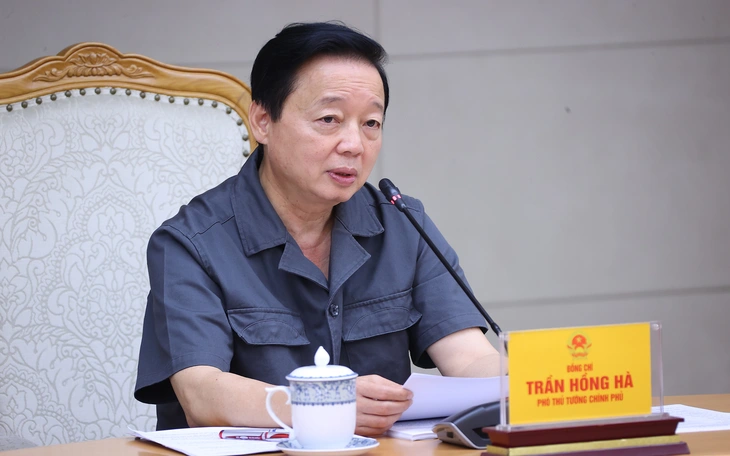
Deputy Prime Minister Tran Hong Ha - Photo: VGP
Building an effective fund operating mechanism, avoiding formalities
In conclusion, Deputy Prime Minister Tran Hong Ha emphasized that the National Housing Fund is not only about creating housing from purchasing social housing and commercial housing, but also about investing in housing and synchronous infrastructure.
Therefore, the operating mechanism needs to be carefully researched, methodical and long-term, not falling into a state of formality, separating the housing fund and the financial fund, having a mechanism to attract, mobilize capital, and allocate resources reasonably.
The operation can be assigned to existing institutions such as housing development investment funds in Hanoi and Ho Chi Minh City, encouraging organizations such as the Vietnam General Confederation of Labor and large enterprises to participate in building rental housing.
In particular, it is necessary to consider the management mechanism to attract high-quality human resources, manage in an enterprise-oriented, strict and effective manner, and avoid operating according to a rigid career model.
To create long-term, sustainable resources, the Deputy Prime Minister suggested that the drafting agency study a plan to use 20% of land fund from unused commercial housing projects and resettlement housing funds, while allowing capital accumulated from leasing activities to be recycled back into the fund.
Housing Fund housing areas must be located within urban planning, have synchronous infrastructure, appropriate rental prices, and are considered long-term public assets.
Construction and management can be assigned to large state-owned enterprises or the General Confederation of Labor for worker housing and dormitory projects, according to the principle "whoever is assigned, that person is responsible, and when the construction is completed, there must be tenants".
Source: https://tuoitre.vn/lap-quy-nha-o-quoc-gia-lam-nha-xa-hoi-pho-thu-tuong-yeu-cau-xay-xong-phai-co-nguoi-thue-20250925152749586.htm



![[Photo] Prime Minister Pham Minh Chinh meets with representatives of outstanding teachers](https://vphoto.vietnam.vn/thumb/1200x675/vietnam/resource/IMAGE/2025/11/15/1763215934276_dsc-0578-jpg.webp)

![[Photo] General Secretary To Lam receives Vice President of Luxshare-ICT Group (China)](https://vphoto.vietnam.vn/thumb/1200x675/vietnam/resource/IMAGE/2025/11/15/1763211137119_a1-bnd-7809-8939-jpg.webp)








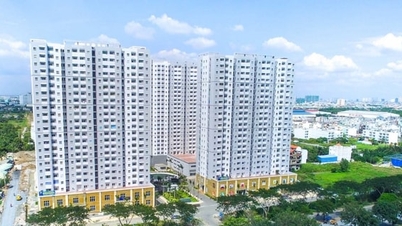


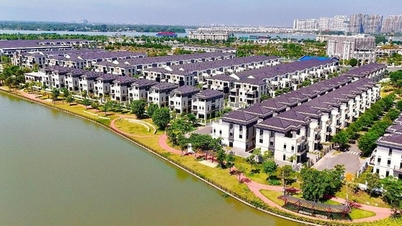








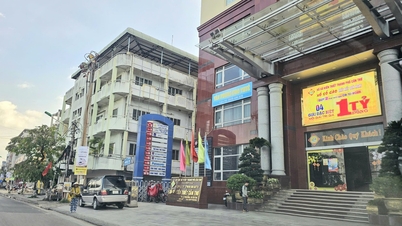

















































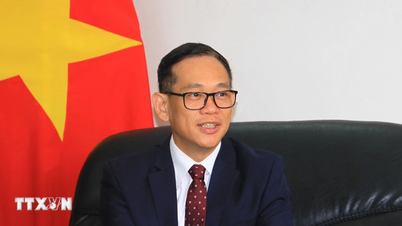


































Comment (0)